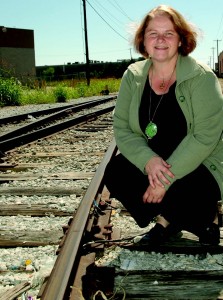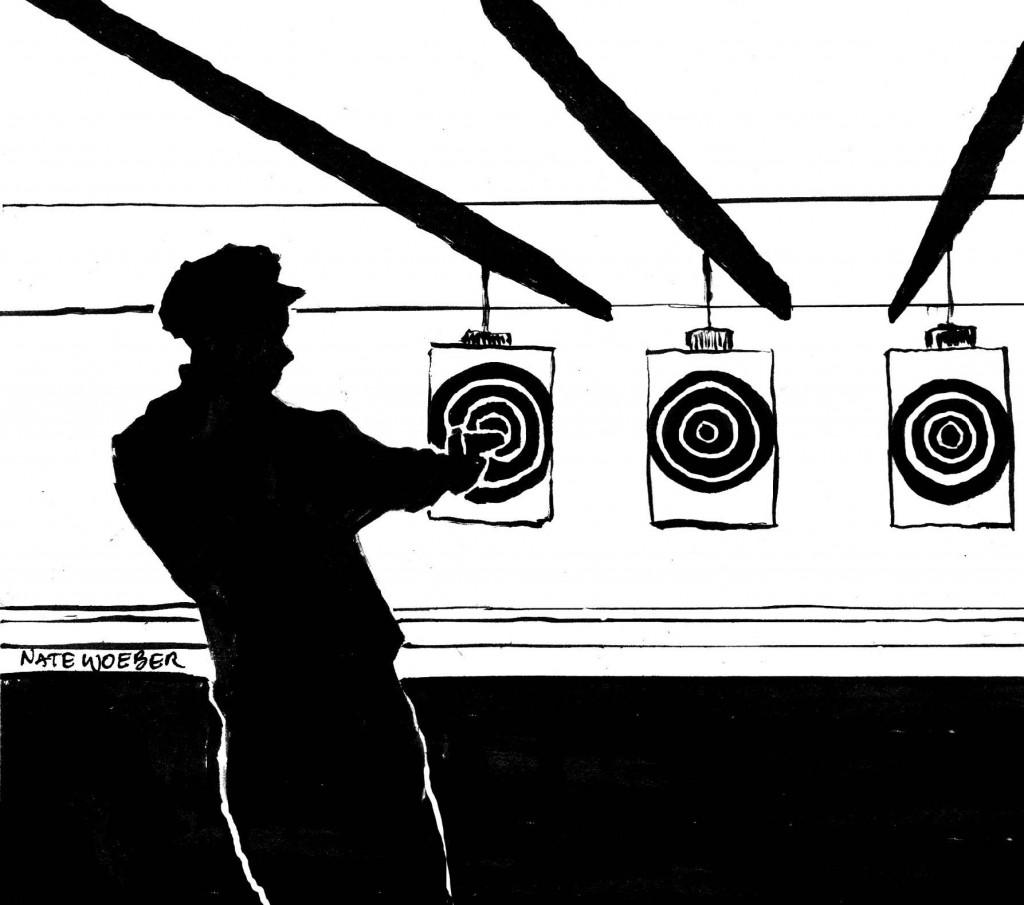By Marley Malenfant/se news editor

SE history adjunct Robin Cole-Jett is a maestro on the history of railroads throughout Texas.Cole-Jett was born in Paris, Texas, but grew up in western Germany. She left Germany at 16 and returned to Texas.Cole-Jett said her interest in rail history expanded when she went to Texas Woman’s University to earn her second master’s. Cole-Jett wrote a book on the travels of Bonnie and Clyde in Texas titled, Traveling History with Bonnie and Clyde: A Road Tripper’s Guide to Gangster Sites in Middle America.
Cole-Jett also works as an education consultant at the Museum of the American Railroad in Dallas’ Fair Park.
“The railroads pretty much brought industrialization to Texas,” she said. “I started working at an archive at a railroad museum, and it just kind of went from there.”
Cole-Jett said she was accustomed to public transportation in Germany, but her move to North Texas was a culture shock.
“My mom is German, and after my dad died, we went to Germany,” she said. “We never had a car. Trains were second nature to me, and when I came back to the States, there were no trains. We had to have a car. And I just wondered where public transportation had gone.”
When Cole-Jett was working on her second master’s degree, she took a short-semester course on industrial history.
Cole-Jett said a class trip to the South Side of Chicago in 2005 broadened her idea about rail history.
“We took Amtrak to Chicago and then went to the Pullman factory and saw where they had made the trains,” she said. “It was the first type of assembly factory in the United States, and that’s where they created those Pullman cars.”
On Sept. 25, Cole-Jett spoke on the rail history in Ellis County in the Museum of the American Railroad. She said the county’s rail system affected the county economically, politically and socially.
“Ellis County didn’t have a railroad until after the Civil War,” she said. “Waxahachie knew that without the rail, it would die. Citizens got together, and they put their money together and created what they call a tap railroad. The railroad was just 30 miles long. People were able to ship their products on the rail.”
Cole-Jett said Americans are too dependent on everyday vehicles. She said she hopes Americans understand the relativity of public transportation.
“Everything is car-centered around here, and it doesn’t make sense to me,” she said. “Public transportation allows the connectivity, and that’s what we need.”






















